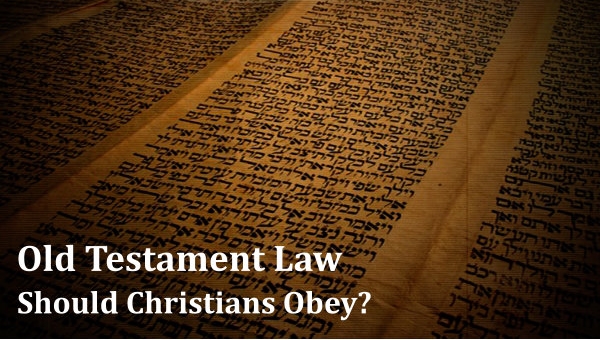By Tyson Thorne

We’ve talked about divisions of Old Testament Law before, but only in generalities as – most of the time – those laws do not apply to modern believer. It would be wrong, however, to throw them all out or ignore them completely. Old Testament law can still teach us much about who God is and what he expects from his people, and besides, some of them do still apply. The Law is often divided into three sections: Ceremonial Laws, Civil Laws and Moral Laws. It’s the last of these that is applicable to us today, even after the resurrection of Jesus.
Ceremonial Laws pertained to temple services and events, and includes even such things as taxes and tithes for the priests. Since the temple and its sacrifices are no longer relevant under the new covenant, these laws hold mostly historical and cultural relevance to the modern reader. Civil laws pertained to how the land was ruled, the responsibilities of rulers and subjects to each other and to God. This even included welfare-style commandments and instructions regarding the treatment of visiting foreigners. Since there is no one left living in the theocracy that was ancient Israel, these laws primarily give us insight into what God expects of the citizens of his kingdom, and the God-ordained responsibilities of governments.
Moral Laws on the other hand, like the Ten Commandments, were never repealed or replaced and are relevant for all time. Morality, like truth, doesn’t change (despite what “situational ethics” might teach), and clearly communicate our responsibility for not only our actions but our thoughts as well (Matthew 5.28). They are universal and something every person in every time is accountable to. What all is included in the Moral Laws? That’s a question Christianity has been trying to answer literally since the beginning of the church.
Examine Acts 15, where a special council was called to address what Gentile believers should be responsible for obeying. Certainly none of them want to hang the oppressive yolk of the Mosaic Law on Gentile followers of Christ. In fact, Paul taught against such things in his letters to the various churches, and Luke mentions a group of “Judiazers” who followed Paul during his missionary journeys in an attempt to confuse the new believers into obeying the whole law. Their inspired decision was interesting:
For it seemed best to the Holy Spirit and to us not to place any greater burden on you than these necessary rules: that you abstain from meat that has been sacrificed to idols and from blood and from what has been strangled and from sexual immorality. If you keep yourselves from doing these things, you will do well. – Acts 15.28-29
This seems like an odd list. There is no mention here of not murdering people – or any of the Ten Commandments – and no mention of loving God or other fundamentals. Maybe those laws were too obvious to bear mention; that would explain why they went with some of the more obscure (to us, not to Jews) laws like a few dietary restrictions and an emphasis to reject the cultures acceptance of sexual immorality. It raises an interesting question though: are modern believer’s responsible to adhere to Old Testament dietary laws? That’s a question we’ll tackle tomorrow.
|
|